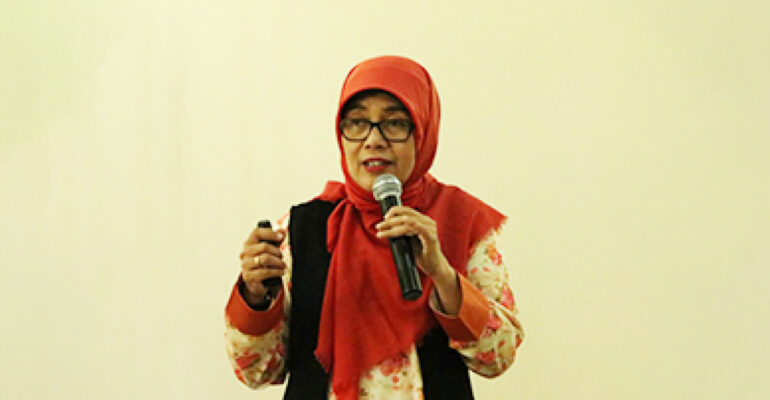IPB University Entomologist Mentioned Wolbachia Mosquito Technology as New Hope to Prevent Spike in Dengue Fever

The increase in dengue hemorrhagic fever (DHF) cases during the rainy season is a major concern of the Ministry of Health (Kemenkes). One of the prevention efforts that has been implemented is the Wolbachia mosquito technology, which is proven to be able to suppress the spread of the dengue virus.
Responding to this, IPB University Entomologist, Prof drh Upik Kesumawati Hadi said that Wolbachia mosquito technology has actually been utilized in several countries.
This utilization is in order to reduce dengue fever cases as done by Australia, Vietnam, Brazil, Colombia, Honduras, El Salvador, and Singapore.
“Meanwhile in Indonesia, the success story of the technology utilization has been reported from Yogyakarta. The results can reduce 77 percent of dengue fever cases and reduce the potential for hospitalization by 86 percent in 2022,” she said.
The Professor of the School of Veterinary Medicine and Biomedical Science (SKHB) IPB University continued, the wolbachia mosquito technology has also been recommended by the WHO Vector Control Advisory Group (VCAG) in 2023 as one of the methods in handling dengue fever cases.
This, she said, shows that the wolbachia mosquito technology is safe to be applied as one of the methods in handling dengue fever in Indonesia.
“As a pilot project, currently our government has designated five cities in Indonesia, namely West Jakarta (DKI Jakarta), Bandung (West Java), Semarang (Central Java), Bontang (East Kalimantan), and Kupang (NTT), to apply the wolbachia mosquito technology. We will wait for the results in at least one to two years,” she said.
Prof Upik further explained that wolbachia in the body of the Ae. aegypti mosquito can block the replication of the dengue virus.
Wolbachia bacteria work by taking away food sources for dengue virus development. Thus, the virus has difficulty reproducing.
“As a result, mosquitoes containing wolbachia are no longer able to transmit dengue virus when they suck the blood of people infected with dengue virus. This process is then utilized and developed as an alternative technology to reduce the ability of Ae. aegypti mosquitoes as vectors of dengue virus transmission,” she said.
According to experts, Prof Upik continued, the wolbachia mosquito technology is not genetic engineering. This is because the mosquitoes are born from eggs that have been previously intervened by wolbachia bacteria. This method also does not involve genetic modification of the Ae. aegypti mosquito or wolbachia bacteria.
However, the results of the spread of the wolbachia mosquitoes cannot be felt immediately, and will only be felt at least 1-2 years after the release of the mosquitoes.
“This is because the population of wolbachia-infected mosquitoes in the intervention areas has not yet reached the ideal population, which is around 60 percent in the wild. Once this has been achieved, the intervention will be stopped,” she said.
Furthermore, Prof Upik explained that the wolbachia mosquitoes will naturally reproduce until the entire population reaches 100 percent wolbachia by itself (replacement process).
Therefore, the technology of releasing the wolbachia mosquitoes cannot immediately free the community from dengue fever infection.
“Still, the main effort to prevent and control dengue virus is to maintain personal and environmental hygiene, so that the life cycle of the Ae. aegypti mosquito is interrupted,” she said.
Prof Upik revealed that so far the government program that has existed for a long time but is less popular in the community, namely the 3M plus Movement. This movement is to drain, cover, and recycle waste. The plus is personal protection efforts to prevent mosquito bites carried out by each individual.
“The 3M plus movement is actually very effective, cheap, and easy to do. The problem is that people are reluctant to do it,” she said.
Prof Upik continued, there is also the 1 house 1 jumantik movement (G1R1J) but it also has the same fate as 3M plus. So it is not surprising that throughout the year there are always cases of dengue fever and in the rainy season there is a spike in cases.
“Currently, the wolbachia mosquito technology has been implemented in five cities, and it is possible that it will be expanded if the results are satisfactory. However, efforts to implement the 3M plus G1R1J Movement must be carried out to achieve maximum results,” she concluded. (IAAS/KDP)



